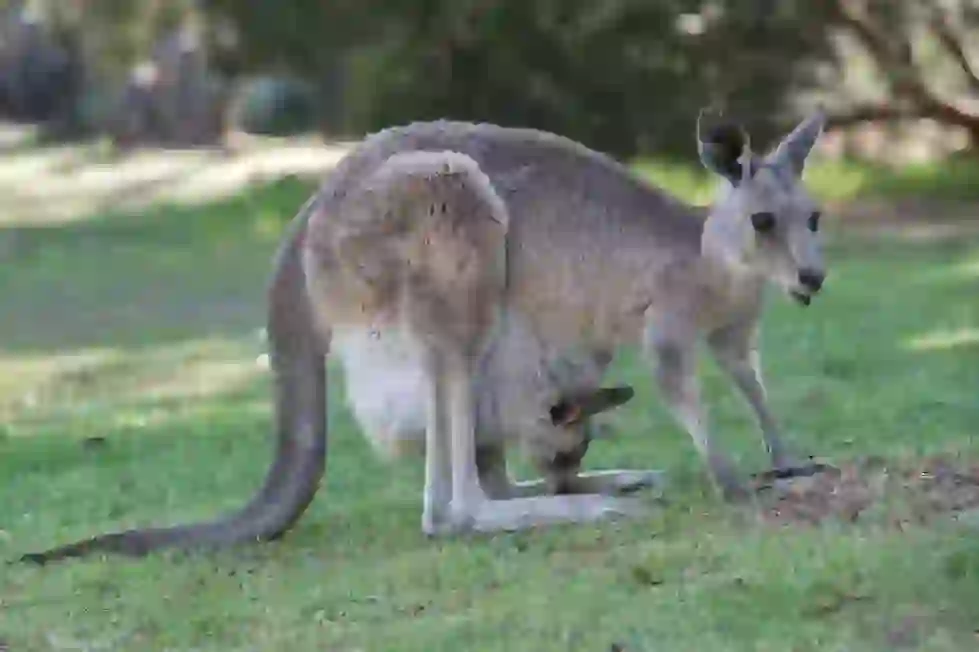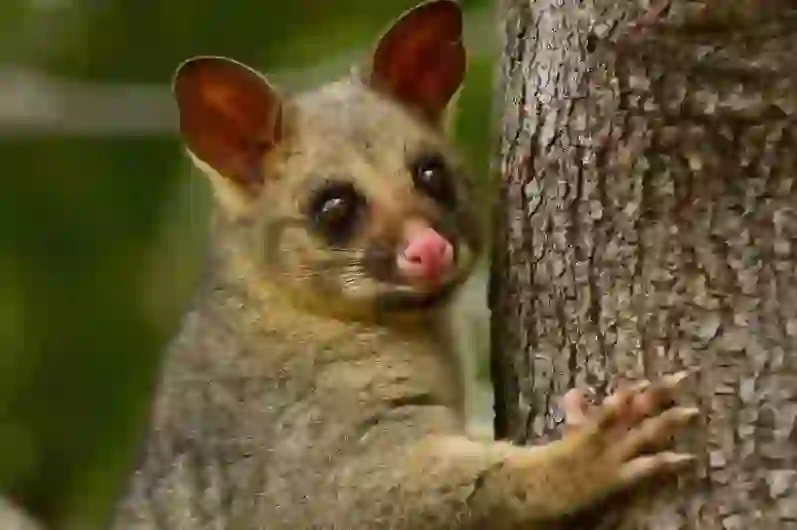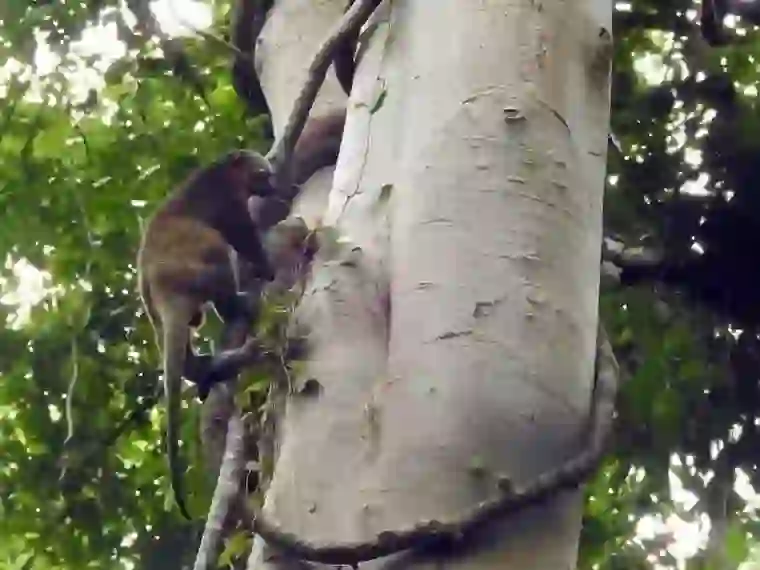
Cuscus
Cuscus
Cuscus
Do you know about the animal called 'Cuscus', often described as an exotic creature? It has an interesting name, doesn't it? The name 'Cuscus' did not come from the laughter it induces. So, why is it called 'Cuscus'? Let's dive into the origins of its name and explore more about Cuscus!
Cuscus Basic Infomation
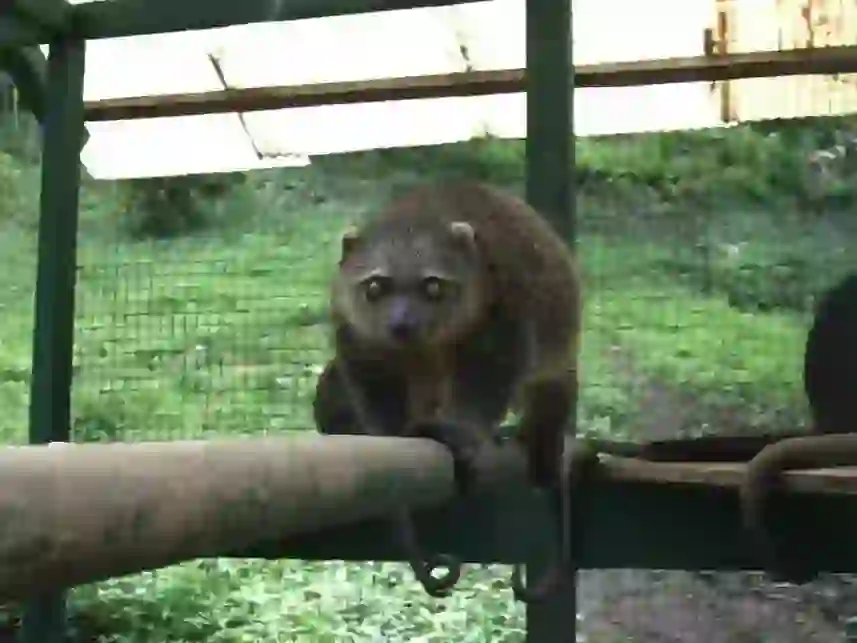
Class: Mammalia, Order: Diprotodontia, Family: Phalangeridae, Subfamily: Phalangerinae, commonly referred to as 'Cuscuses'
Body length: 27-70 cm, Tail length: 24-48 cm, Weight: around 5 kg
Cuscuses are found in northern Australia's Cape York Peninsula, the tropical forests of New Guinea, the islands of Indonesia such as Maluku and Sulawesi, as well as the Solomon and Moluccas Islands. They primarily live in rainforests, less dense forests, and eucalyptus forests.
Like kangaroos, they have a pouch. They are considered relatively large among marsupials.
Their bodies are densely furred but their tails are bare, which helps them wrap their tails around branches.
Their front paws have hook-like claws that are ideal for climbing trees. Their first toe on the hind feet, analogous to a human's thumb, lacks a nail, which helps them grasp branches by opposing the other toes, much like a chimpanzee's foot.
Interestingly, their index and middle toes are fused together.
Their heads are small and round, and their eyes vary in color depending on the species. Their pupils are vertically slit, similar to those of snakes or cats. Their ears are very short, hidden under their body hair, and barely visible.
Cuscuses eat plants but have a long cecum, which is well-suited for digesting leaves.
Cuscus Q&A

What is the origin of the name 'Cuscus'?
The name 'Cuscus' is quite intriguing! It derives from the word for 'flatulence' or in some Aboriginal languages, it means 'foul smell', attributed to the strong odor they can emit.
Cuscus is also known by other names such as 'Cascas' and 'Yubimusubi', the latter meaning 'finger-tied' in Japanese, referring to the appearance of their fused fingers.
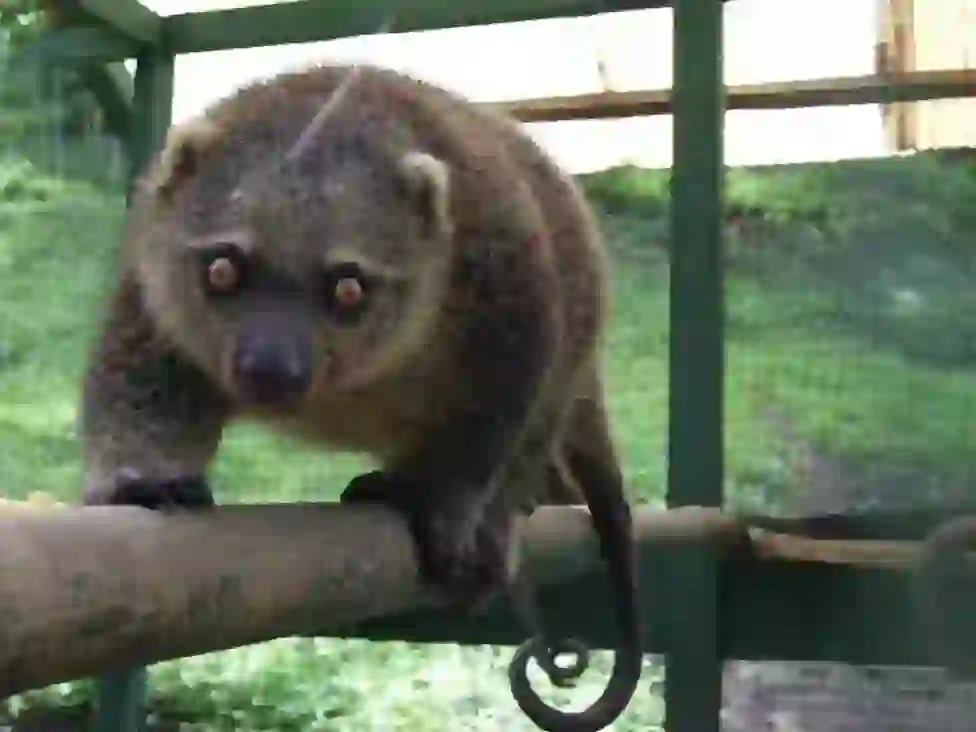
Why do Cuscus live there?
Cuscus inhabit areas rich in trees because they are arboreal. They primarily live in the trees but some species, like the Ground Cuscus, also spend time on the ground. They are nocturnal and move slowly.
Living solitarily, they mark their territory with scent from urine and feces and alert others to their presence with vocalizations to maintain their space.
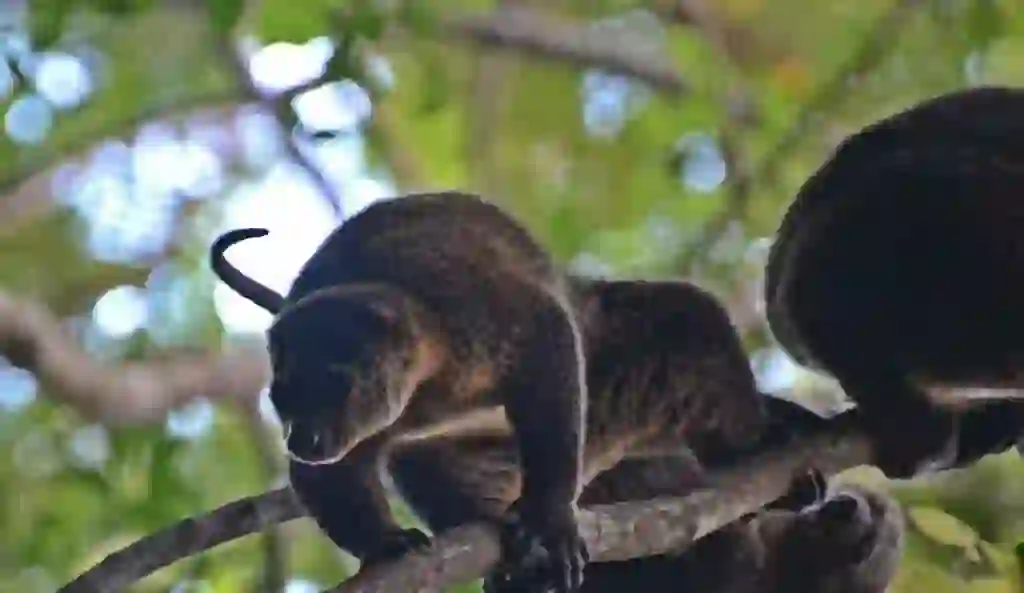
What does the Cuscus eat?
Cuscus mainly consume leaves. They also eat fruits, tree bark, eggs, small mammals, invertebrates, and insects, showcasing a broad omnivorous diet.
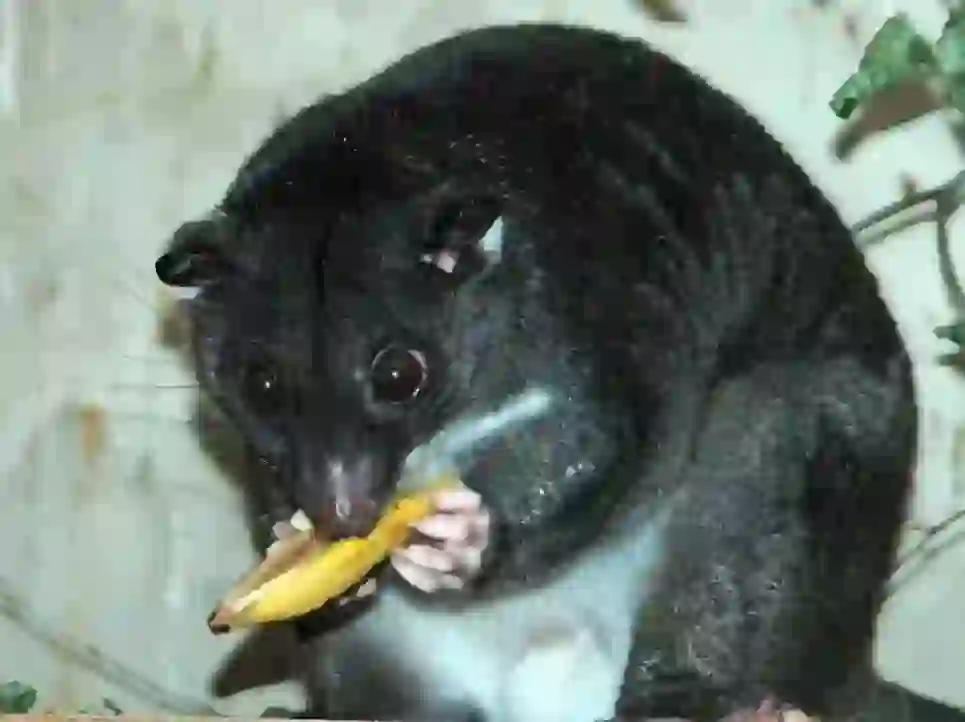
How does the Cuscus care for its young?
The gestation period of a Cuscus is remarkably short at only 13 days. They give birth to 1-3 offspring, but usually, only one survives. The young are nurtured in the mother's pouch, similar to kangaroos.
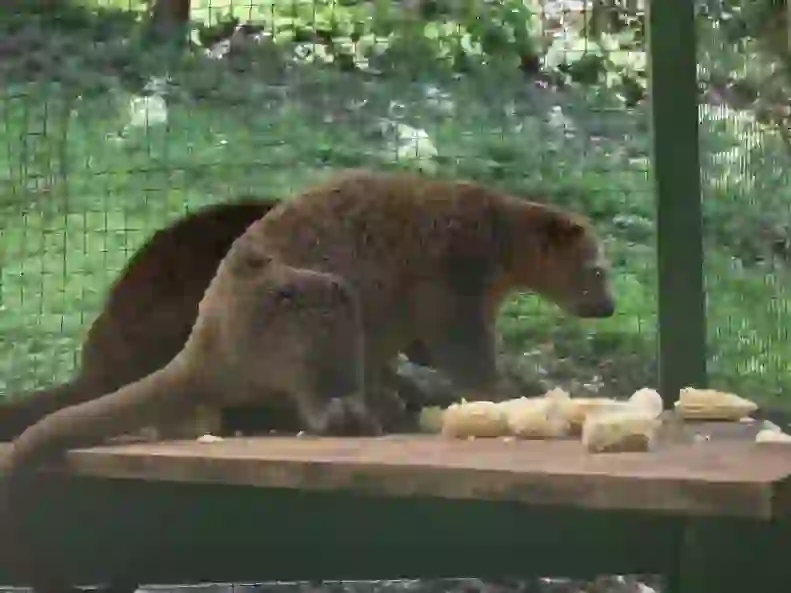
Where can you find Cuscus?
Unfortunately, Cuscus are not currently bred in Japanese zoos. The last 'Spotted Cuscus' in Japan passed away in 2012 at Kumamoto City Zoo, living a long life equivalent to over 90 human years.
While Cuscus themselves are rare, their relative, the 'Common Spotted Cuscus', can be seen at Tama Zoological Park in Tokyo.
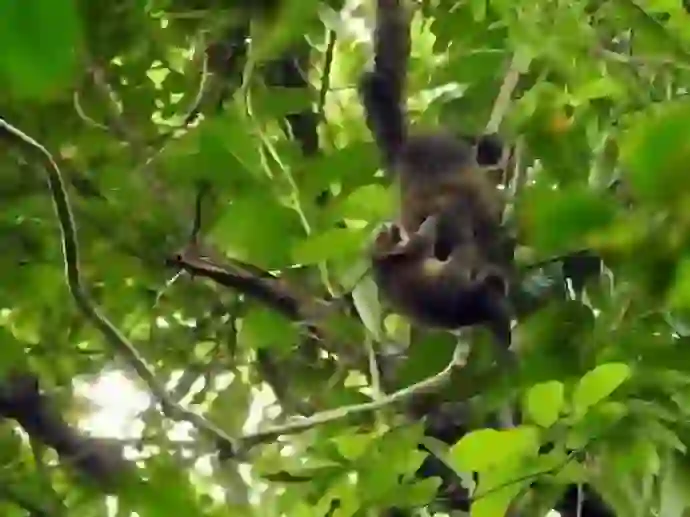
Is it true that humans hunt and eat Cuscus?
Despite being a protected species, illegal hunting of Cuscus persists. They are hunted for their meat and fur, used in traditional hats. The practice is driven by the necessity for protein in remote areas and cultural significance where hunting symbolizes strength.
Local communities regulate their hunting practices to prevent over-exploitation, setting their own 'no-hunting periods' which are strictly adhered to, showing a sustainable approach to living with nature.

Would you like to become a part of the 'Animalbook.jp'?
Turn your knowledge into Q&A and share it with the world. ※Publication will be activated after purchase. Let's share information together!
Cuscus Type of List
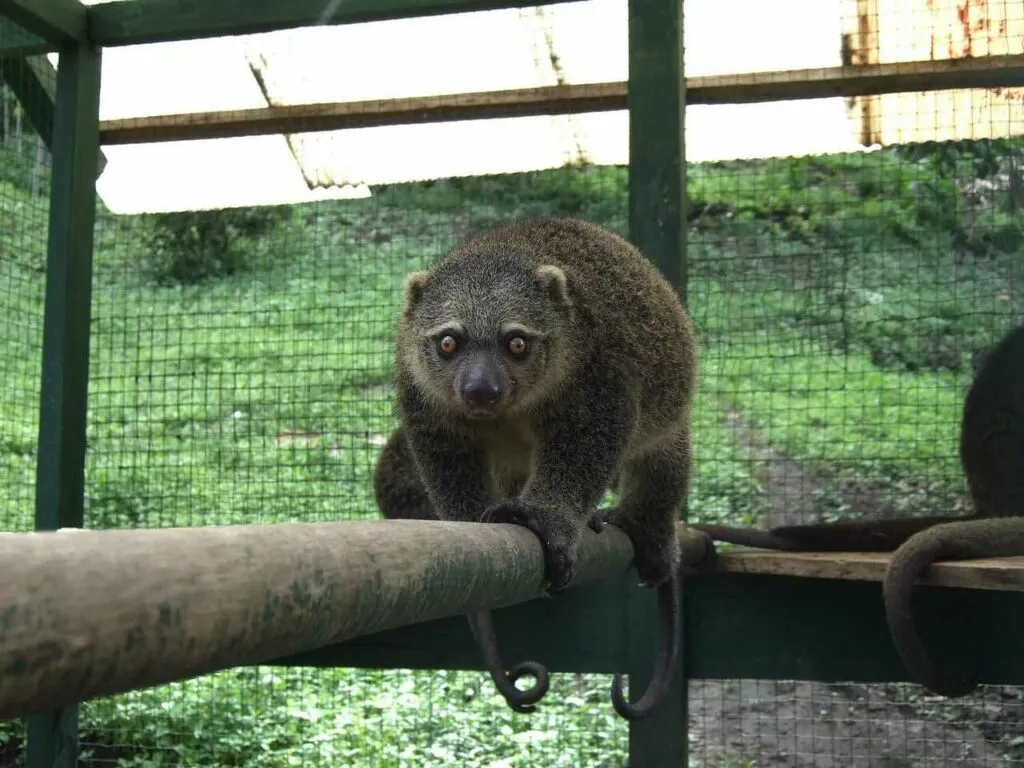
- Black-eared Cuscus
- Black Cuscus
- Gebe Cuscus
- Mountain Cuscus
- Stein's Cuscus
- Woodlark Cuscus
- Blue-eyed Cuscus
- Telefomin Cuscus
- Southern Cuscus
- Grey Cuscus
- Ornate Cuscus
- Obi Cuscus
- Silky Cuscus
- Admiralty Cuscus
- Spotted Cuscus
- Waigeo Spotted Cuscus
- Black-spotted Cuscus
- Dwarf Cuscus
- Banggai Dwarf Cuscus
- From here on, the names do not include 'Cuscus' but they are still part of the Cuscus family:
- Northern Common Cuscus
- Common Spotted Cuscus
- Mountain Spotted Cuscus
- Red Spotted Cuscus
- Common Cuscus
- Ringtail Possum
Information
Congratulations! You are the first commenter!

Create Your Favorite List!
Cuscus
Save the animals you love! Build your own list to quickly revisit your favorites later.

Would you like to leave a comment?
※Please note: This is for the purchase of rights to post comments within the article.
Find Your Favorites!
Our shop offers a unique and attractive selection of goods themed around various animals.
Cuscus References

- Wikipedia https://ja.wikipedia.org/wiki/クスクス科
- FUNDO https://fundo.jp/315100
- コトバンク https://kotobank.jp/word/クスクス(動物)-1527028
- ピクシブ百科事典 https://dic.pixiv.net/a/クスクス(動物)
- アリエスコム ARIEScom https://www.ariescom.jp/entry/cuscus
- 動物図鑑@ウィキ https://w.atwiki.jp/joboneyard/pages/44.html
- ANIMALS https://a--z--animals-com.translate.goog/animals/cuscus/?_x_tr_sl=en&_x_tr_tl=ja&_x_tr_hl=ja&_x_tr_pto=sc
- クスクスを狩る経験 パプアニューギニア一山地民の動物経験の一断面とその文化的・社会的意味 吉田匡興(桜美林大学) https://www.jstage.jst.go.jp/article/jasca/2011/0/2011_0_29/_pdf
- tixas https://tixas.ru/ja/sumchatoe-zhivotnoe-kuskus-kus-kus-chto-za-zver-i-s-chem-ego-edyat-razmnozhenie/
- アニマルマニア https://blog.goo.ne.jp/kurikararyuou/e/57ec02f8b3fce35c3c19917a7cd02c84
- セラム島のクスクス猟−インドネシア東部島嶼地域の慣習的な森林利用と管理― 笹岡正俊 https://www.jifpro.or.jp/cgi-bin/ntr/documents/NET4964.pdf
Cuscus Introduction of media used

Help Enrich Our Animalbook.jp with Your Media!
We are constantly looking to expand and enrich our Animalbook.jp with amazing photos and videos of animals. If you have any media that you'd like to share, please contribute and help us showcase the beauty and diversity of the animal kingdom. Your submissions will be credited and featured in our encyclopedia, reaching a wide audience of animal lovers.
















